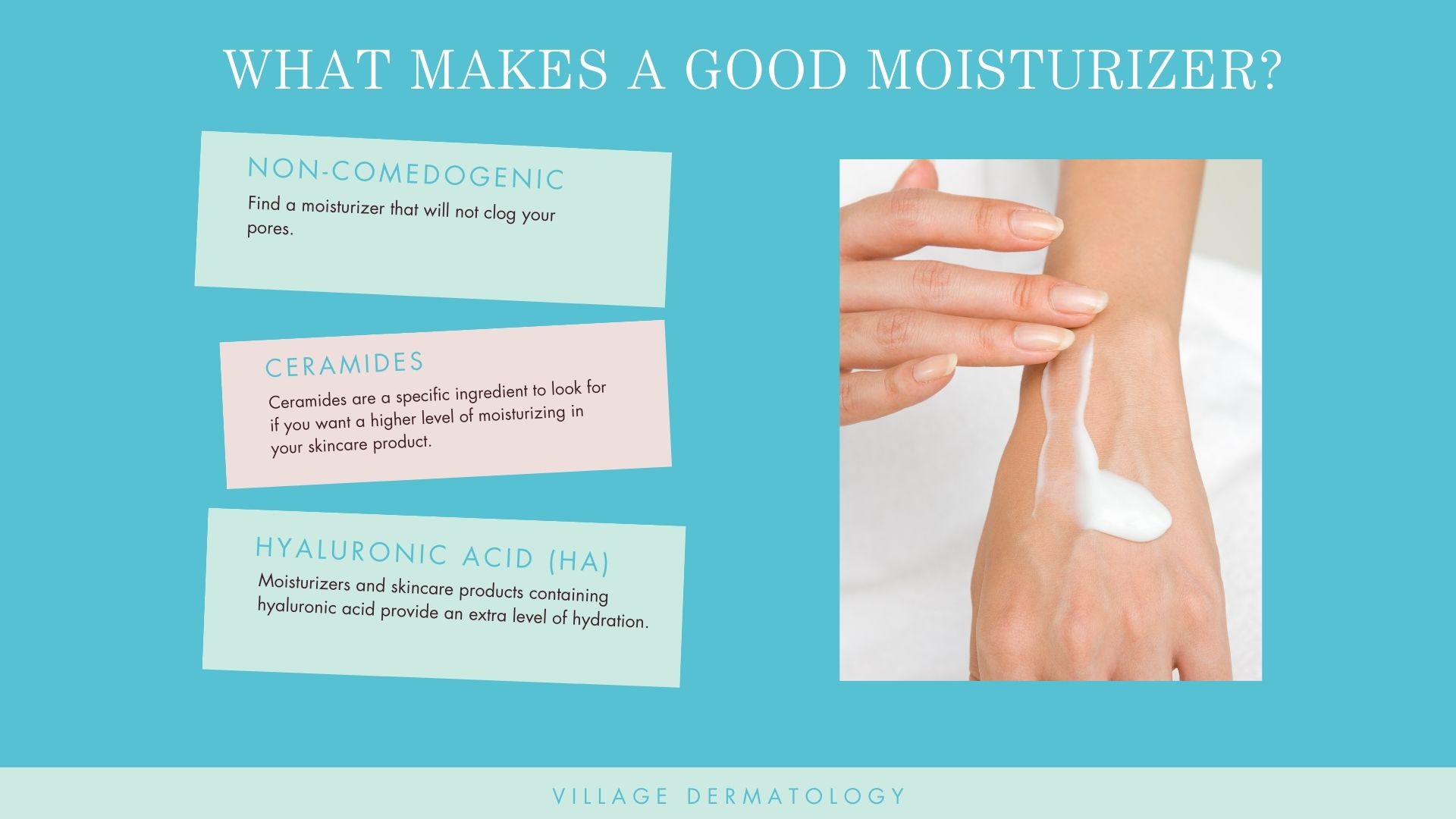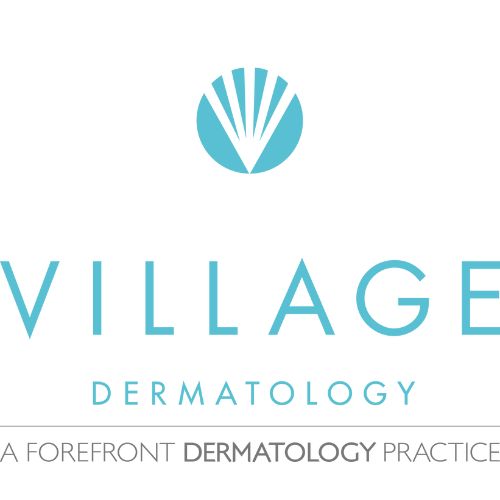What makes a good moisturizer?
A good moisturizer should be able to hydrate the skin and seal in that moisture without clogging pores or causing irritation. It should also be formulated with ingredients that are beneficial for the skin, such as antioxidants, hyaluronic acid, and ceramides. Additionally, it should be appropriate for the individual’s skin type (e.g., oily, dry, sensitive, etc.). The end goal is to provide the necessary ingredients for a healthy skin barrier. Maintaining an effective skin barrier without clogging your pores is the key to hydration for your skin.
Below we will discuss some key ingredients to look for when accessing different moisturizers. But first, we need to discuss how non-comedogenic products work and why they are important when determining your perfect moisturizer.

How do non-comedogenic products work?
Non-comedogenic products are specifically formulated not to clog pores. They are typically oil-free and have a lightweight consistency, which allows the skin to breathe. Ingredients that are known to clog pores, such as heavy oils and waxes, are often avoided in non-comedogenic products. Instead, they may contain ingredients that help to control excess oil and keep the skin clear, such as salicylic acid and benzoyl peroxide. Non-comedogenic products are often recommended for people with acne-prone or oily skin, as they can help prevent breakouts.
What are ceramides, and why are they good for your skin?
Ceramides are a type of lipid (fat) that are naturally found in the skin. They comprise about 50% of the skin’s outer layer (the stratum corneum) and are crucial in maintaining the skin’s barrier function. Ceramides are a specific ingredient to look for if you want a higher level of moisturizing in your skincare product.
Ceramides help to hold the skin cells together and form a barrier that helps the skin to secure moisture and protect the skin from environmental stressors, such as pollution and UV rays. They also help to prevent the penetration of bacteria and irritants into the skin. When ceramide levels are low, the skin can become dry, flaky, and more prone to irritation and infection.
Ceramides are also important in the process of skin hydration and water retention. They help retain the water in the skin and regulate the water balance between the skin cells.
Adding ceramides to skincare products can benefit people with dry, aging, or sensitive skin, as they can help strengthen the skin’s barrier and improve hydration. They can be found in creams, lotions, and serums and can be used alone or in combination with other ingredients.
It’s important to note that ceramides are not the only ingredients that are important for a healthy skin barrier, but they are an important one.
What is HA or hyaluronic acid, and why is it good for your skin?
Hyaluronic acid (HA) is an integral part of the skin and occurs naturally in the body. Our skin contains high levels of HA. It is a type of glycosaminoglycan, which is a type of carbohydrate that is found in the skin and other tissues. Moisturizers and skincare products containing hyaluronic acid provide an extra level of hydration.
Hyaluronic acid has the ability to hold large amounts of water, which is why it is often used in skincare products as a moisturizer. In fact, it can hold up to 1000 times its weight in water, making it a powerful ingredient for hydration. It helps to plump up the skin, reduce the appearance of wrinkles and fine lines, and improve skin elasticity.
Hyaluronic acid also acts as a barrier to protect the skin from environmental stressors such as pollution and UV rays. It can also help to improve the skin’s texture and tone, making it look more youthful and radiant.
Hyaluronic acid is known for being well tolerated and is suitable for all skin types but can be especially beneficial for those with dry, mature, or sensitive skin. It can be found in various forms, such as serums, creams, and masks, and can be used alone or in combination with other ingredients.
It’s important to note that the size of hyaluronic acid molecules can make a difference in how it works on the skin. Smaller molecules can penetrate deeper into the skin, while larger molecules tend to stay on the surface, providing a more immediate hydration boost.
Your Perfect Moisturizer
Hopefully, this article has helped you better understand some of the different ingredients to look for in an effective moisturizer. Picking the right moisturizing product for your skin can make a difference in giving your skin barrier the help it needs to perform its job correctly. However, some individuals may want to “fine-tune” their skincare regimen with a product that fits their skin. We encourage you to stop by our Skin for Life Boutique in Mountain Brook, AL, or contact us if you want more specific direction from one of our Skincare Specialists. If your schedule doesn’t allow that, we have listed a few of our best-selling moisturizing products below.

